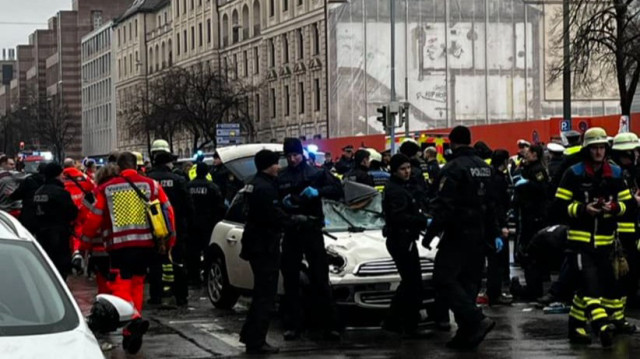Global Dynamics at Munich Security Conference
Explore the controversies and diplomatic tensions at the Munich Security Conference as discussions center around Europe, the US, and the broader implications for Ukraine and Russia.
Published February 15, 2025 - 00:02am
Image recovered from moneydj.com
The Munich Security Conference, a pivotal event in global diplomacy, has recently seen heightened tensions and dialogues on critical international issues, particularly the ongoing conflict in Ukraine. Central to this year's discussions was U.S. Vice President JD Vance's controversial address, which has sparked significant reactions and overshadowed deliberations on potential peace talks between Ukraine and Russia.
Vance's speech diverted focus from the anticipated peace negotiations, aiming at the war in Ukraine. Instead, he raised arguments against European leadership, accusing them of undermining free speech and weak immigration control. His remarks provoked stark responses from European leaders, such as German Defense Minister Boris Pistorius, who found the comments intolerable. Pistorius countered Vance's allegations by defending the democratic resilience of Europe, asserting that democracy does not allow minority factions to dictate the truth and must protect itself from extremism.
The backdrop of these tensions is a week marked by a conversation between U.S. President Donald Trump and Russian President Vladimir Putin, wherein Trump indicated an immediate start to peace negotiations. This call, though partially downplayed in Vance's address at the conference, remains a significant diplomatic event, arousing concerns among European leaders wary of being excluded from talks that could drastically affect their security interests.
Ukrainian President Volodymyr Zelenskyy's participation in the conference underscored the regional stakes, as he stressed the necessity for real security guarantees from Western allies. With hopes pinned on the potential negotiations with Russia, Zelenskyy maintained that any dialogue with Putin would rely on aligned strategies with both the U.S. and European allies. The Ukrainian leadership continues to call for substantial Western support while the geopolitical landscape intensifies.
On the economic front, developments include Ukraine's opening talks with the U.S. for agreements on its mines, with President Zelenskyy hopeful for expedited negotiations. This move is seen as an effort to cement U.S.-Ukrainian economic and strategic partnerships amid the turmoil.
Fundamental to the conference's agenda was a call for enhanced European defense capabilities. Vance reiterated Trump's sentiments urging Europe to assume greater responsibility for its security, align with the U.S. strategy to concentrate on the Indo-Pacific region, and decrease long-standing military reliance on America. NATO Secretary-General Mark Rutte backed this viewpoint, stressing a need for increased European defense investments, reflecting a consensus among several European leaders on defense autonomy.
Against this backdrop, the conference highlighted the dichotomy between the U.S. and European positions on central global issues such as free speech, migration, and regional defense. While the U.S. stresses for a recalibration of European policy, actors like Pistorius reaffirm Europe's commitment to democratic values and autonomy in addressing its unique challenges.
Whether these discussions will translate into tangible shifts in international policy remains to be seen; however, the diplomatic interactions at Munich reflect the inherent complexities and multifaceted challenges in navigating contemporary global issues. Both Europe and the U.S. are left to ponder the outcomes and repercussions of their dealings, especially in light of potential peace talks with Russia and the future of Ukraine's sovereignty.





